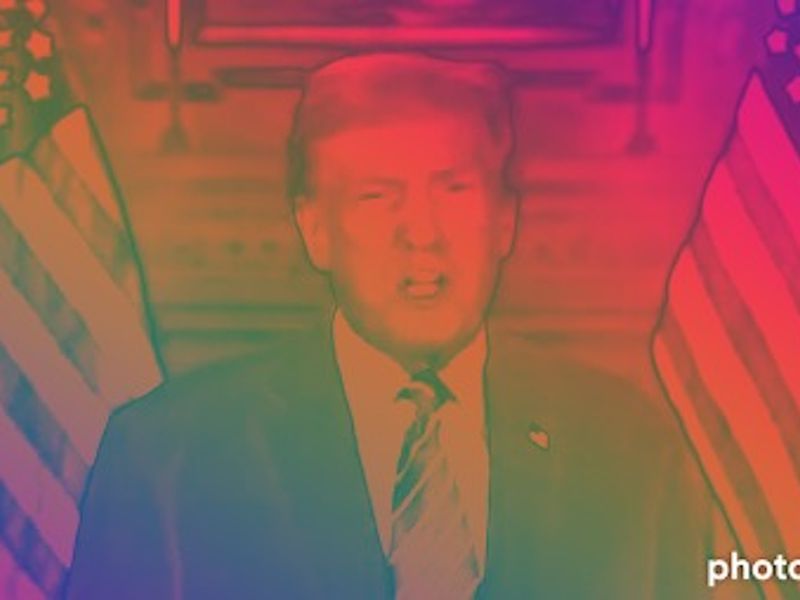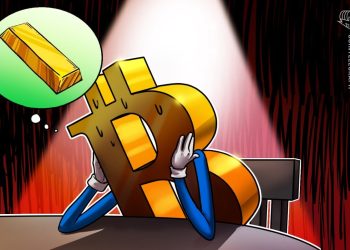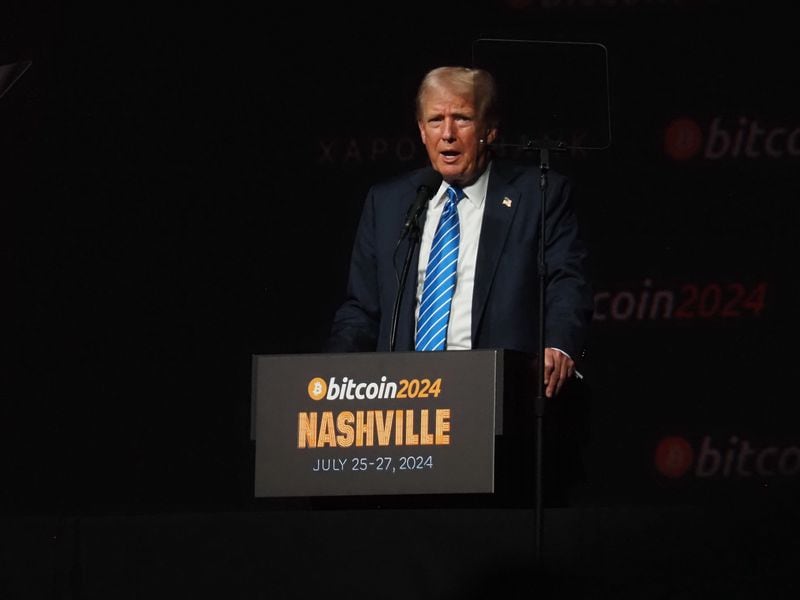The Trump family-backed World Liberty Financial’s WLFI token sale went live at 12:40 UTC.
The token sale website suffered numerous outages shortly after going live, and as of 15:41 UTC, some 344 million tokens had been sold to around 3,000 unique wallets. Still, the amount represented just 1.7% of the 20 billion tokens allocated to the public sale.
WLFI serves as a governance token for the platform, enabling users to participate in DeFi activities like borrowing, lending, and creating liquidity pools.
Republican Donald Trump holds the role of “chief crypto advocate,” with his sons Eric and Donald Jr. as “web3 ambassadors,” and Barron as the “DeFi visionary,” highlighting the family’s deep involvement in the project.
A new crypto project promoted by U.S. Republican presidential candidate Donald Trump and his family got off to a bumpy start on Tuesday, as the website crashed and sales of a new digital token fell far short of the $300 million fundraising target during the first few hours.
The public token sale for the crypto project, World Liberty Financial, appeared to go live around 12:40 UTC (8:40 a.m. ET), and almost 2,900 investors bought the token despite the site suffering numerous outages during its first hour.
Blockchain data shows that about 344 million of the platform’s WLFI tokens were sold in the first hour to around 3,000 unique wallets.
But that amount still represented just 1.7% of the 20 billion tokens allocated to the public sale.
Sandy Peng, a WLFI advisor and co-founder of the Scroll blockchain network, attributed the website outages to excessive traffic. “The team wasn’t expecting this level of interest,” said Peng, whose Scroll network is set to host World Liberty Financial’s blockchain application.
According to Peng, the World Liberty Financial website—which serves as the official portal to the WLFI token sale—received 72 million unique visits in its first hour. The site fell offline due to the excessive traffic but has come back online intermittently, apparently having switched to a new web hosting service.
WLFI token sales appeared to ramp up around 17:30 UTC, when the website came back online for about an hour. By 18:10 UTC, an Ethereum blockchain wallet connected to the token sale held nearly $5.7 million worth of ether (ETH), $1.6 million of tether (USDT) and around $300,000 USD Coin (USDC) tokens.
According to project officials, the WLFI token will be used to govern the World Liberty Finance platform, which is designed to let users engage in borrowing, lending and other DeFi activities. The token, which will be non-transferable for the time being, will give users a vote in matters such as protocol upgrades, technical changes, promotional partnerships and oversight of security risks.
Trump is described in materials for the project as World Liberty Financial’s “chief crypto advocate.” His three sons, Eric, Barron, and Donald Jr. are listed as “Web3 ambassadors.”
Some 20 billion tokens were allocated to the public sale, offered at a fixed price of $0.015, or 1.5 cents each, amounting to a total fundraising goal of $300 million. The overall supply of the tokens, including those not available through the public sale, is 100 billion.
The WLFI token sale is restricted exclusively to non-U.S. persons and accredited U.S. investors. Top officials behind World Liberty Financial disclosed Monday that the project had whitelisted over 100,000 accredited U.S. investors ahead of the token launch. The U.S. restrictions are designed to protect WLF from violating U.S. securities regulations.
In the U.S., an accredited investor is authorized by the Securities and Exchange Commission to invest in unregistered securities such as pre-IPO shares. They must meet specific income and net worth criteria, such as $200,000 in annual earnings and total assets over $1 million.
A “gold paper” about the token released Tuesday morning shed more details on WLFI, including its distribution and exact role in the platform.
World Liberty Financial is described as a unified platform where users can borrow and lend cryptocurrencies, create liquidity pools and transact with stablecoins.
The token will allow holders to propose future changes to the platform. However, all $WLFI will be non-transferable – meaning they will be locked indefinitely in a wallet, or “smart contract,” and impossible to trade unless the rules are modified in the future. All governance decisions will be in line with U.S. regulations to ensure any changes are complaint with laws, according to the WLF team.
“WLF strongly believes in supporting US dollar-based stablecoins and DeFi applications that seek to preserve the US Dollar’s status, ensuring it remains the global reserve currency for the next century—without compromising the freedoms that decentralized assets provide,” an excerpt from the gold paper reads.
“A key part of our mission at World Liberty Financial is to leverage the global reach and recognition of the Trump brand to bring as many Web2 users into the world of Web3 as possible,” it added.
UPDATE Oct. 15 13:45 UTC: Adds updated token sale figures, changes headline and adds information about the token.
UPDATE Oct. 15 14:04 UTC: Changes headline to reflect site outage, updates opening paragraph.
UPDATE Oct. 15 16:08 UTC: Changes headline, updates figures and adds context on token use case.
UPDATE Oct. 15 18:15 UTC: Adds updated token sale figures, adds additional information about the token and site outages.

![[Action required] Your RSS.app Trial has Expired.](https://8v.com/info/wp-content/uploads/2026/01/rss-app-cfAqZL-75x75.png)









![[Action required] Your RSS.app Trial has Expired.](https://8v.com/info/wp-content/uploads/2026/01/rss-app-cfAqZL-350x250.png)










